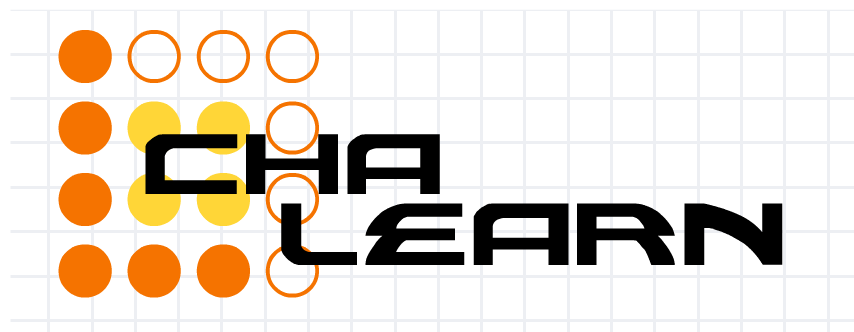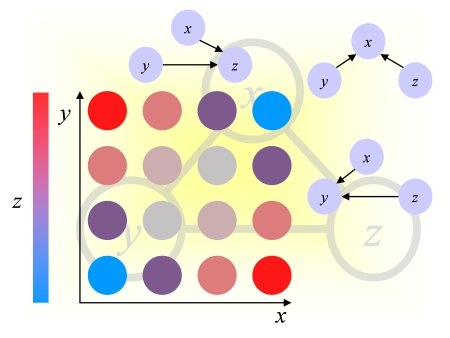NEWS:
- Apr 9 - Jun 15, 2014: ChaLearn Fast Causation Coefficient Challenge. A challenge with CODE SUBMISSION to test the Codalab platform: your ticket to the MS Faculty summit 2014 in Redmond, July 14-15, 2014.
- Feb 5 - May 5, 2014: ChaLearn Neural Connectomics challenge. Part of the official competition programs of WCCI 2014 (Jul 6-11, 2014, Beijing, China) and ECML 2014 (Sep 15-19, 2014, Nancy, France).
- Feb 9 - May 15, 2014: ChaLearn Looking at People challenge. To be discussed at ECCV 2014 (Sep 6-12, 2014, Zurich, Switzerland).
- September 2013. Our non-for-profit organization CHALEARN has now 501(c)3 tax exempt status.
|
Welcome to the causality workbench!
The purpose of this project is to provide an environment to test machine learning and causal discovery algorithms.
As part of the development of this environment, we organized several
challenges.
We will progressively add datasets and software packages to our
repository. Our
virtual lab allows users to design virtual experiments to study artificial causal systems. It is also extremely useful to organize regular machine learning challenges because it allows users to create experiments and monitor them in their own "lab" space.
Motivations
The problem of attributing causes to effects is pervasive in science, medicine, economy and
almost every aspects of our everyday life involving human reasoning and decision making.
One important goal of causal modeling is to unravel enough of the data generating process
to be able to make predictions under manipulations of the system of interest by an external agent (experiments).
Being able to predict the result of actual or potential experiments
is very useful because experiments are often costly and sometimes impossible
or unethical to perform. For instance, in policy-making, one may want to predict
"the effect on a population health status"
of
"forbidding to smoke in public places", before passing a law.
This example illustrates the case of an experiment, which is possible, but expensive.
Forcing people to smoke would constitute an unethical experiment.
The need for assisting policy making and the availability of massive amounts of “observational”
data prompted the proliferation of proposed causal discovery techniques. Each scientific discipline
has its favorite approach (e.g. Bayesian networks in biology and structural equation modeling
in social sciences), not necessarily reflecting better match of techniques to domains, but rather
historical tradition. Standard benchmarks are needed to foster scientific progress.
Beyond our original motivation, there are many "classical" machine learning problems, which require devising experiments. Hence the "virtual lab" of the causality workbench in a great resource to organize machine learning challenges.
Timeline
- February 2007: Project starts. Initial funding of the EU Pascal network.
- August 15, 2007: Two-year grant from the US National Science Foundation.
- December 15, 2007: Workbench made alive. First causality challenge started: predicting the consequences of actions.
- June 2-3, 2008: WCCI 2008, workshop to discuss the results of the first challenge.
- September 15, 2008: Start of new challenge on causal structure discovery (a pot-luck: bring your own problems). Target: NIPS 2008.
- December 12, 2008: NIPS workshop on causality. WCCI 2008 Workshop Proceedings and VideoLectures
- Fall 2009: The virtual lab is under beta-testing. href="http://clopinet.com/isabelle/Projects/reading">Teleconference seminars fall 2009 series
- December 1, 2009. Active Learning Challenge starts.
- December 10, 2009: NIPS 2009 Causality in Time Series Mini-Symposium.
- December 25, 2010. Unsupervised and Transfer Learning Challenge starts.
- March 28, 2013. Cause-Effect Pairs Challenge starts.

